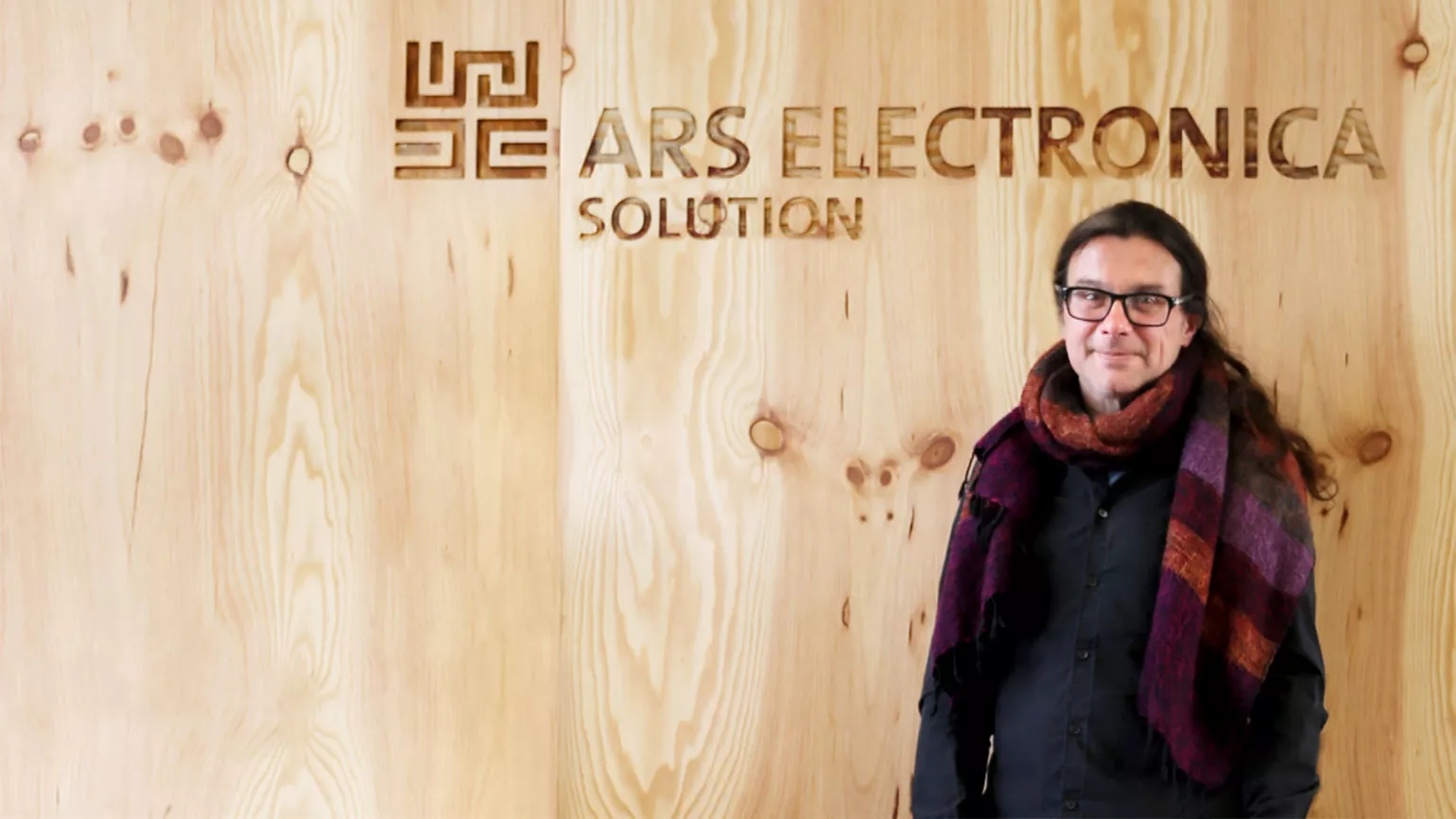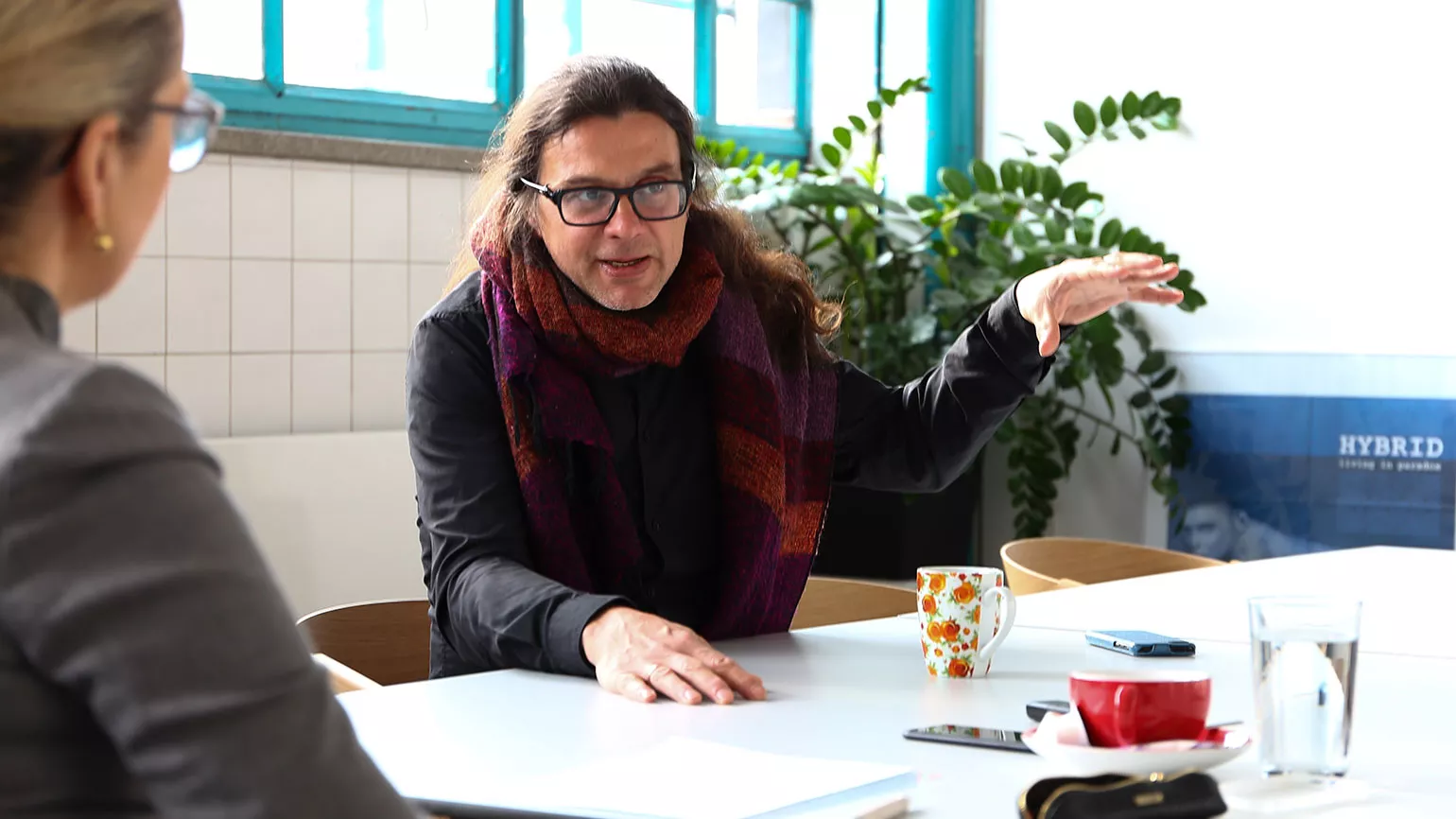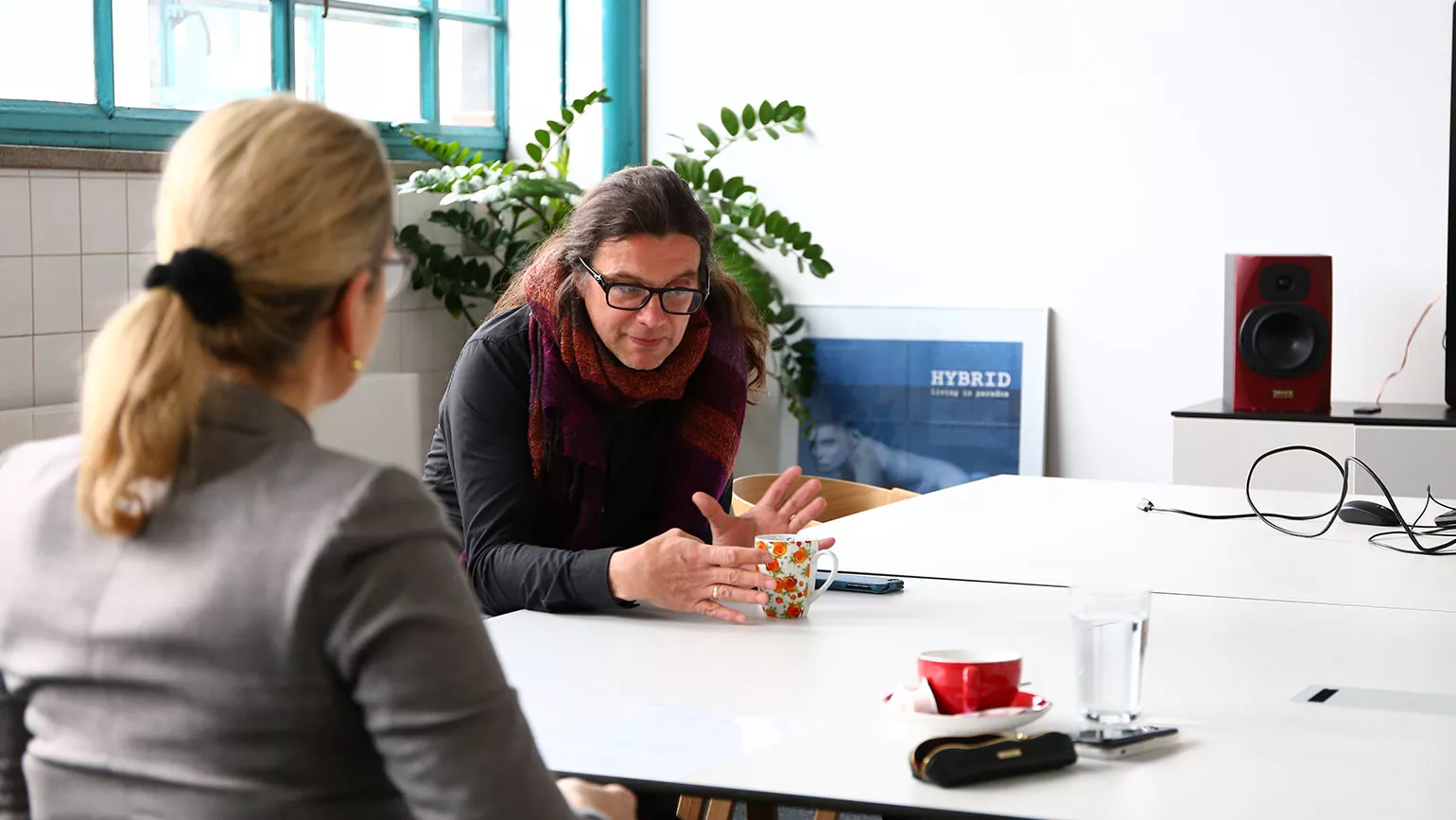“Digitization can become the drivingforce behind a more Humane approach”Interview with Michael Mondria from Ars Electronica Solutions
Mr. Mondria, you designed Fronius’ stand for the 2017 SCHWEISSEN & SCHNEIDEN trade fair. What were the main challenges you faced during this project?
The difficulty always lies in taking a company’s core messages, goals, and visions, and presenting them in a way that means something to visitors at the trade fair on different levels. Basically, we have to make sure that the stand becomes part of the message by carefully selecting the structural design. Our aim is to create a lasting impression while conveying all of the important aspects.
Where did your inspiration come from for Fronius’ stand
It was the company’s vision and the message “Let's get connected.” Obviously this has technological implications, but for me it is mostly about people. We took this message as our starting point. The central element, the arc, is a symbol that reflects different materials being joined together and it was this metaphor at the heart of it all that really inspired me.
Digital communication was one of the focal points at the stand. Where do you think state-of-the-art media technology is going to take us?
What’s really exciting at the moment is augmented reality or, should I say, mixed reality, which is the blend of the real and digital worlds. Five years from now, we will have infrastructures in place that will not have any distinction between real and virtual life. One such prototype that I can think of is the “Magic Leap One” head-mounted display. Groundbreaking developments are also being made in the brain–computer interface (BCI) field, which revolves around technology being used to allow the brain to interact directly with devices. Medical technology is already rather advanced here and can even act as a bridge for coma patients’ nerve impulses, to give them back their ability to communicate. BCI can also be used to interpret brain activity and to stimulate the brain. All of these developments are incredibly exciting, but they do also raise a number of moral questions.
Do you think that these new technologies might signal the end of physical product displays at trade fair stands?
No, I don’t think so. But there is a danger of losing our physical point of reference in a digital world. And that’s why it’s so important that we don’t just do away with real products that we can hold in our hands. Although this view looks to be changing with the next generation, for me, there is still nothing quite like being able to pick up, touch, look at, and try out a product. If you ask me, it would be a real shame if that was no longer an option.
As digitization continues to advance, do you think there’s a chance of humans soon becoming mere objects?
I believe that this is a question we should take very seriously indeed. Around 30 to 40 percent of jobs in today’s society won’t exist within the next 10 to 20 years. It’s up to us now to acknowledge this turning point and react accordingly. We’ve got to think carefully about how, over the next 30 to 50 years, we can get something out of digitization that is meaningful for us as people. There’s no denying that a person cannot process satellite images that are provided in an unfathomable time sequence as quickly as a machine can. But what we can do is create something new. “All” we can do now is make the most of this fact so that it works in mankind’s favor.
How do you mean?
We’ve laid the technological groundwork so that machines can take charge of production and analytical work. That leaves us humans free to concentrate on our planet and our behavior toward each other. There are so many areas that need our attention: plastic in the ocean, climate change, social equality, and the list goes on. For the first time in our history, we are in a position to produce enough food to satisfy the needs of the entire world’s population. And yet so many people are still dying of starvation. But why? We still haven’t got things right here. We need to use the resources we have at our disposal – our brains – to come up with the solutions to these problems.
It sounds as though you view digitization as the driving force behind a more humane approach?
That is my belief exactly. Once we start heading in the right direction, humanity will really be able to benefit from these technological developments for once and for all – in the way we live together on this planet.
Will that apply across all borders and cultures?
It won’t be possible to just transfer the models we’ve developed directly. The world just wouldn’t cope. Instead, it’s time to start thinking about how we can work beyond cultural dependencies. And that’s going to take some time, taking digitization as our starting point and seeing what options it has to offer us. But it’s down to society to get the ball rolling.
MICHAEL MONDRIA, The man behind the interview
Originally from Vienna, Michael studied Computer Science at the Johannes Kepler University Linz, before going on to take on the role of Software Engineer and Vice President of Professional Services at multinational software company Fabasoft AG for the next 15 years.
His next step was to join the team at Ars Electronica. After five years as Head of Business Development at the Futurelab, he founded a software company called Memetics GmbH in Berlin. He was the Managing Director there for two years and then decided to return to Ars Electronica, where he has been heading up the Ars Electronica Solutions division as Senior Director ever since.
Outside of work, he dedicates his time to social projects. For example, he works with his private organization “Pagura Idea” in Nepal to rebuild villages that were destroyed by the earthquake back in 2015.



